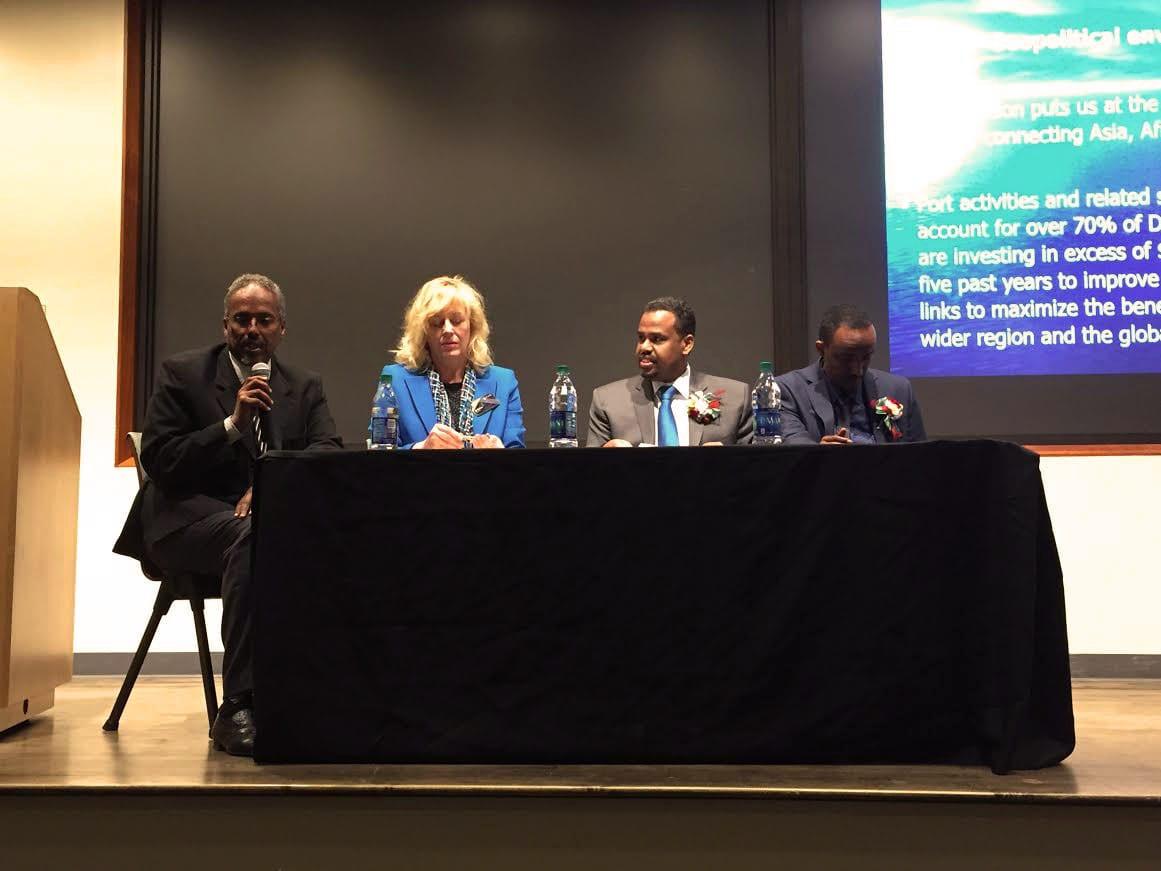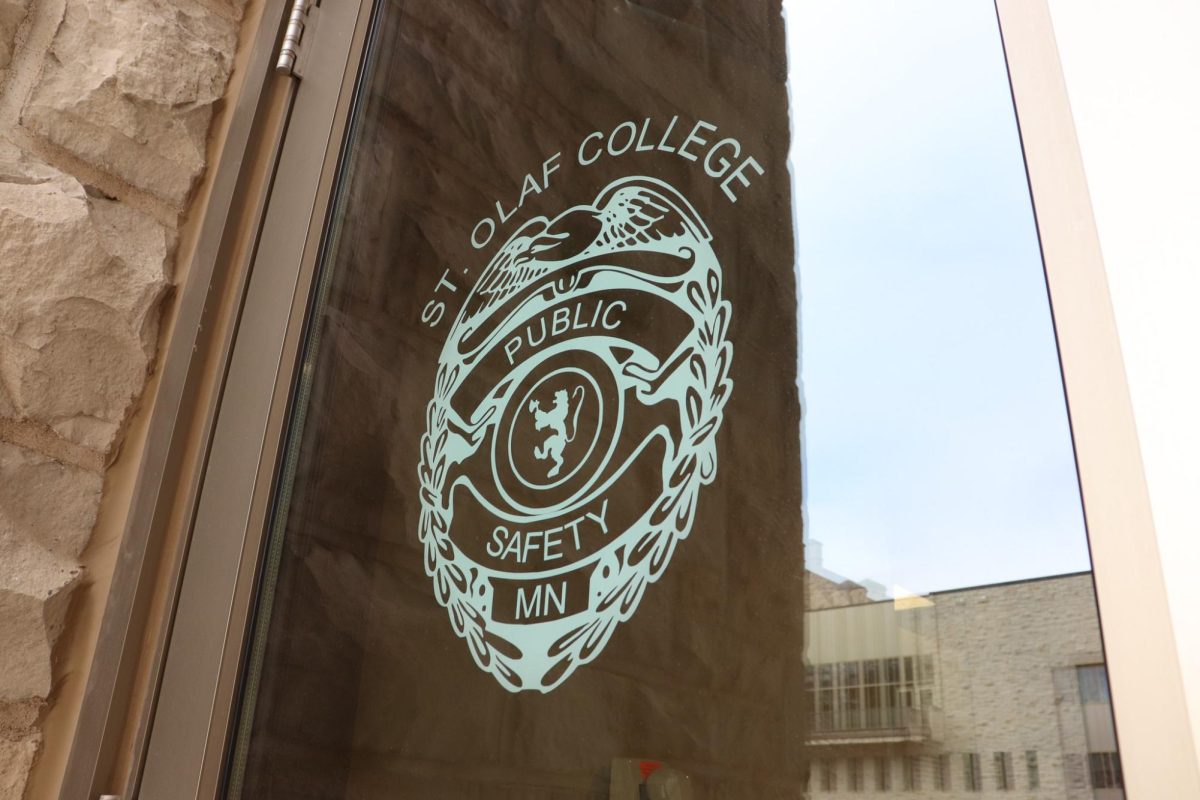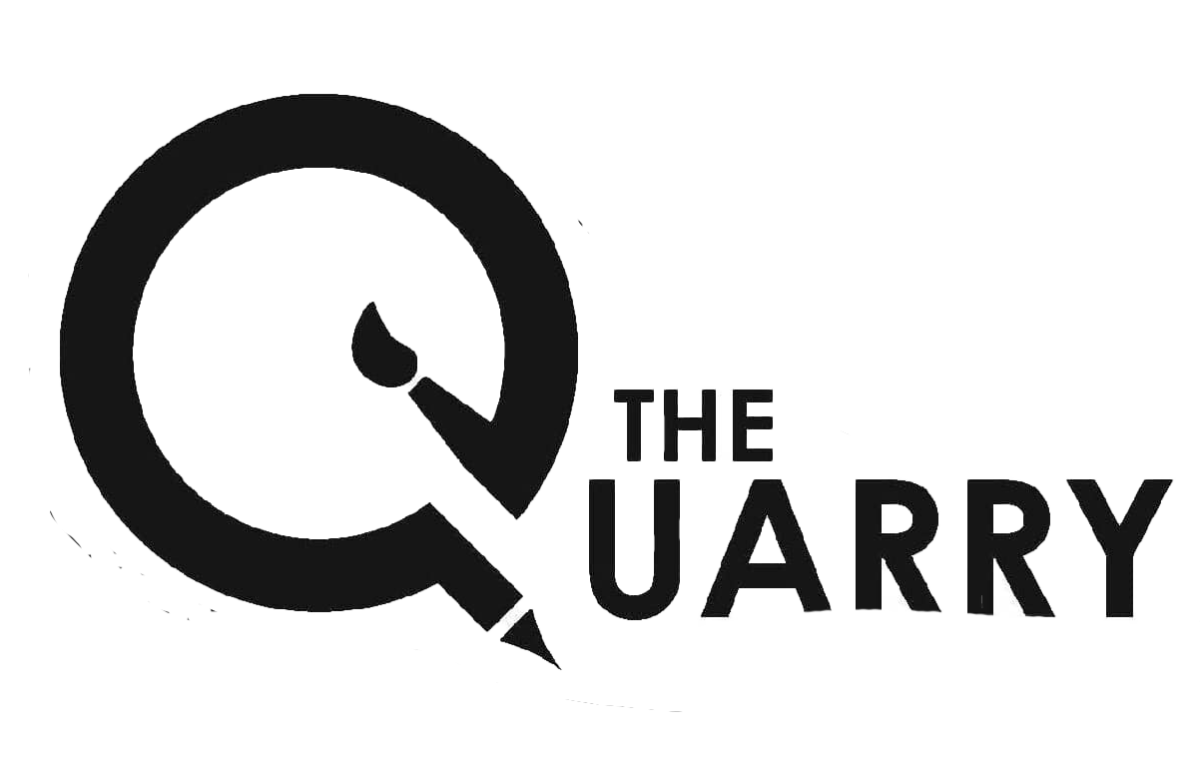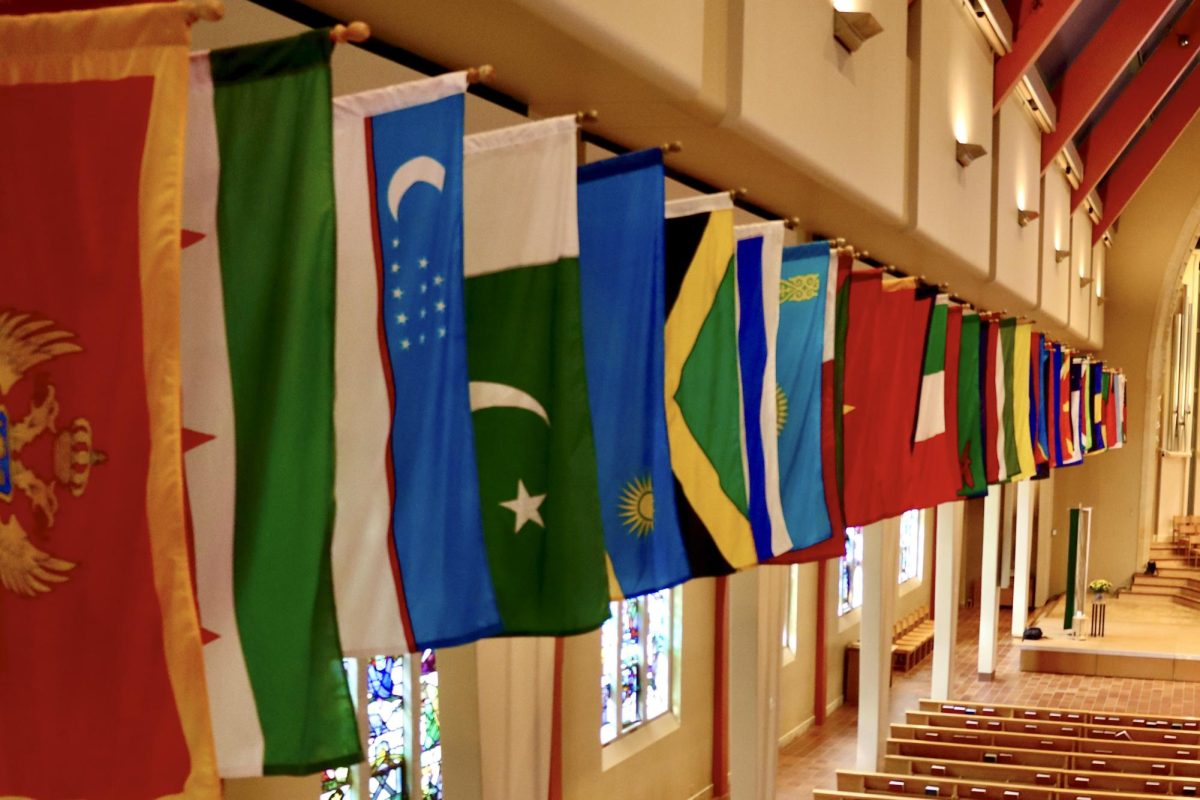A delegation from Djibouti, a country in East Africa, gave a talk at St. Olaf about the country’s domestic priorities, economic development and hopes for building stronger connections with the United States and Minnesota, in part through a possible Interim study abroad program. Ismail Mohamed Djama, counselor at Djibouti’s embassy in Washington, D.C., and Dr. Mag Teerey Ibrahim Ahmed, Professor of Economics at the University of Djibouti, highlighted Djibouti’s strengths and implored the United States to increase investment in Djibouti.
“The Republic of Djibouti’s priority now is to encourage Western investment, both from Europe and from the U.S. …. This is why the delegation came here to St. Olaf, is that we want to continue to deepen a partnership and develop more cooperation and understanding in order to arrive at a win-win solution,” Ahmed said.
The event capped a busy day for the delegation, who were previously given a tour of Northfield by the Northfield Chamber of Commerce, met with city staff at City Hall and discussed the possibility of a partnership with St. Olaf. Education Professor Jill Watson has been working with Dr. Martha Bigelow of the University of Minnesota and Abdi Omar, CEO of Red Sea Shares, a nonprofit that seeks to strengthen ties between Minnesota and Djibouti, to establish a partnership program between Minnesota and the Republic of Djibouti.
Watson, Bigelow and Omar hope to establish an Interim study abroad program where students from St. Olaf and the University of Minnesota would attend classes at the University of Djibouti and teach at the Ali Addeh Refugee Camp or in Djibouti public schools. The partnership would also involve students from the University of Djibouti coming to St. Olaf to take classes, connect with the Somali community (Djibouti has close cultural ties to Somalia) and teach refugee-background youth.
The potential partnership stems in large part from the fact that Minnesota is home to a large community of Somali-Americans. The initial proposal for the interim program aims to “support existing deep ties between Minnesota and Djibouti; connect with diaspora & expat communities in both places: increase understanding of cultural background of the largest ex-patriate population of Somali people in the world.”
Mr. Djama painted a picture of the country as a regional power, pointing to the country’s strategic location, improving infrastructure, and strong regional standing diplomatically and militarily, and connected what he sees as Djibouti’s strengths with an exhortation to strengthen the relationship between the U.S. and Djibouti.
“We want to increase the U.S. private investment in Djibouti, and we hope that the U.S. will invest more in the development of Djibouti, to make Djibouti a trade, financial and technology hub of the region,” said Djama.
Prof. Ahmed also emphasized Djibouti’s assets, particularly its young, growing population and strategic geographical location, and argued that the U.S. is forgoing profitable investment opportunities that are instead going to China. In the last 5 years, China has invested $14 billion in Djibouti as part of its ‘One Belt, One Road’ initiative, a global infrastructure development project.
“In the next 10 years, there is a need for $900 billion in infrastructure investment in Africa in general, and that is expected to come from China,” said Ahmed through Watson’s translation.
Ahmed noted that while the U.S. has been heavily engaged in counter-terrorism in East Africa, it has hardly invested any resources in Djibouti’s economic development. While Ahmed did acknowledge the risks, which include high levels of poverty, unemployment and debt, he argued that investing in Djibouti is still a fundamentally good bet.
“It is the most important strategic location in the world, and the West is there, but only in terms of military presence, and the opportunities are so much greater if the West participates in Djibouti also in the economic plane,” Ahmed said through Watson’s translation.






